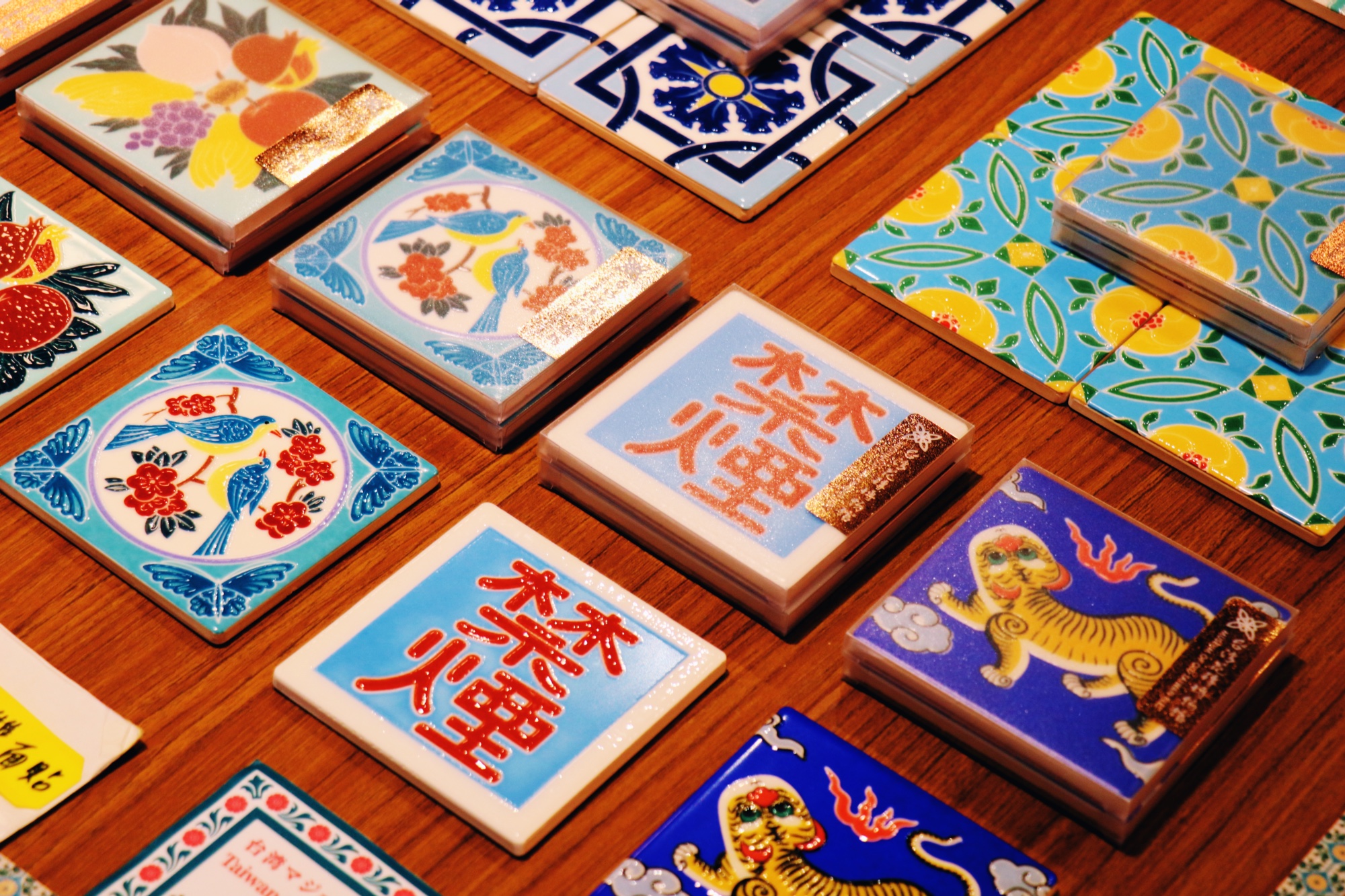Author: Levarcy Chen, Julien Huang
Photo: Levarcy Chen
Editor: Julien Huang
Travelers often say that Chiayi is “Taiwan for Taiwanese people.” This isn’t just because the city preserves so much of old Taiwan’s way of life, but because every dish here carries an unhurried, down-to-earth flavor. From traditional morning treats to farm-to-table lunches, private chef dinners, and the steaming hustle of Dongshi Market with its time-honored establishments, Chiayi’s food scene moves at the same pace as the city itself—simple, heartfelt, and never in a rush.
8:00 AM – Chiayi East Market: The Heart of Daily Life in Chiayi
Chiayi East Market in the morning is one of Chiayi’s most vibrant places. Old stalls, vintage tiles, rising steam, and vendors’ calls create a rhythm that hits you the moment you walk in—you can almost feel the “stomach of the city” waking up. There’s no Instagram-worthy plating here, just the breakfast flavors that live in locals’ memories.
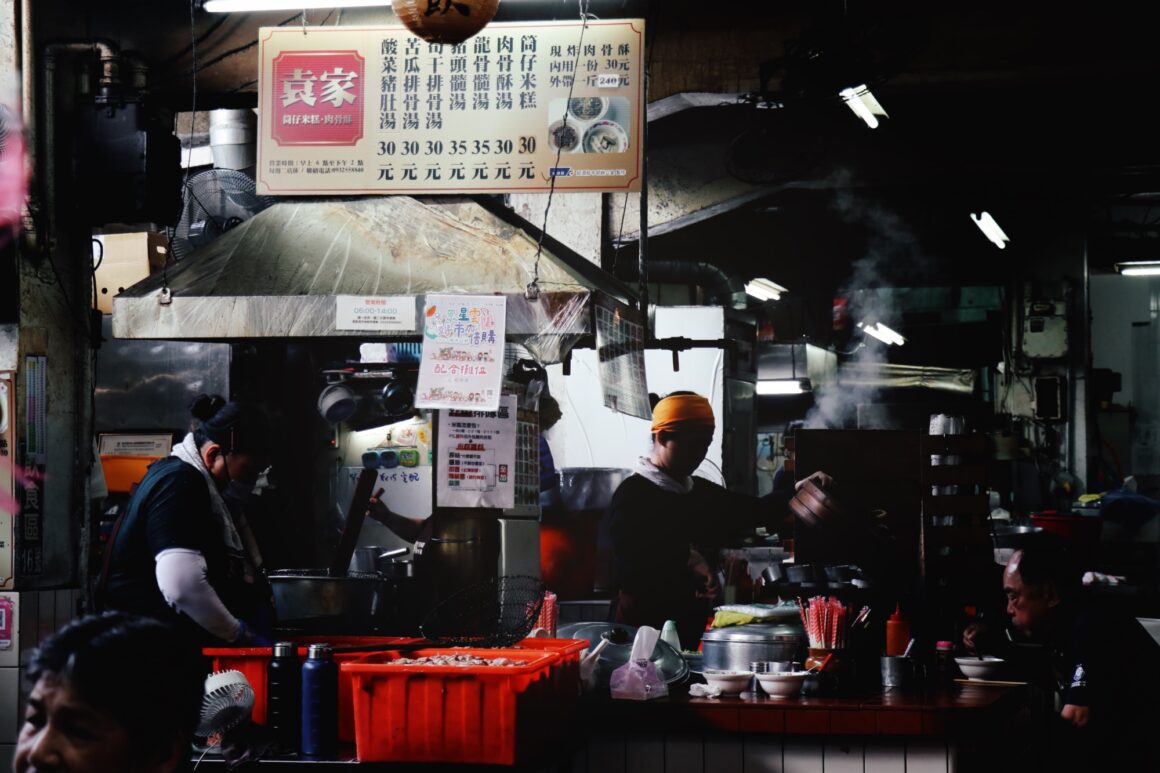
Beef offal soup is a morning staple for many Chiayi residents. Wang Family Beef Offal Soup (王家祖傳本產牛雜湯), now in its fourth generation, uses freshly slaughtered beef and various offal to create a clear, sweet broth. Beef heart, tripe, liver, and tendon each offer different textures—no gamey smell, just a gentle meaty aroma. The large soup pot on the table with “free refills” written on it is the most direct expression of local warmth.
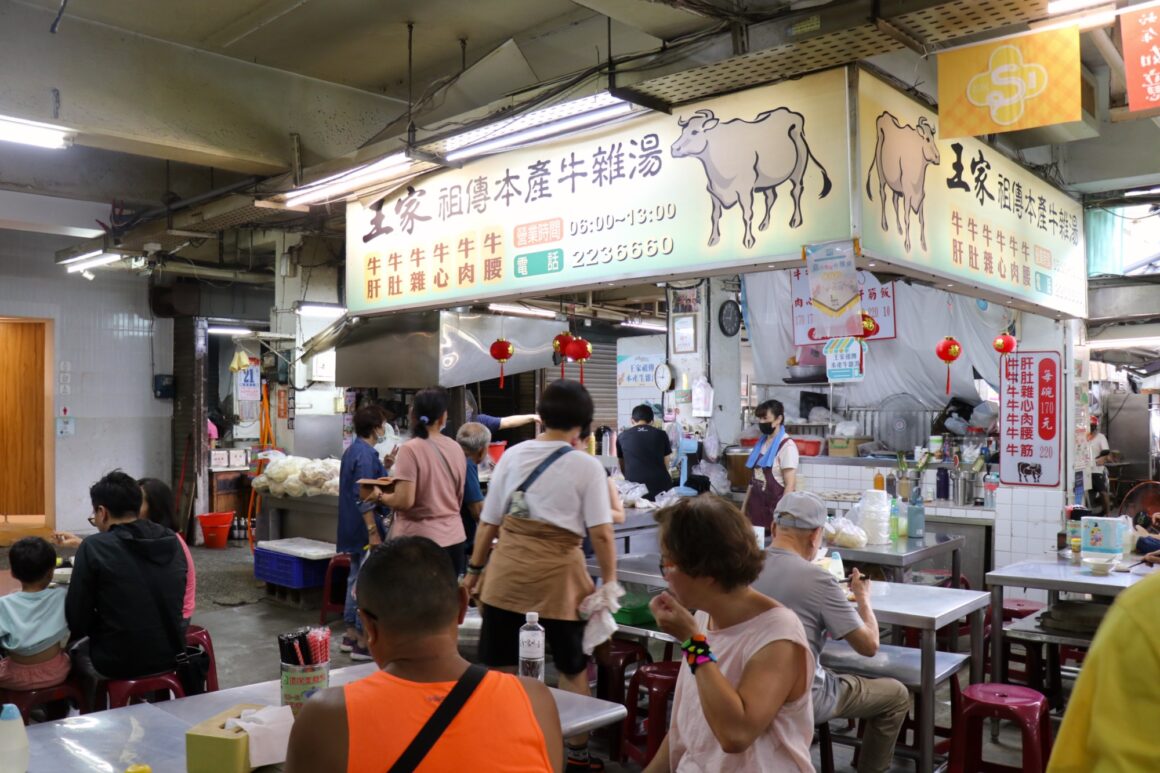
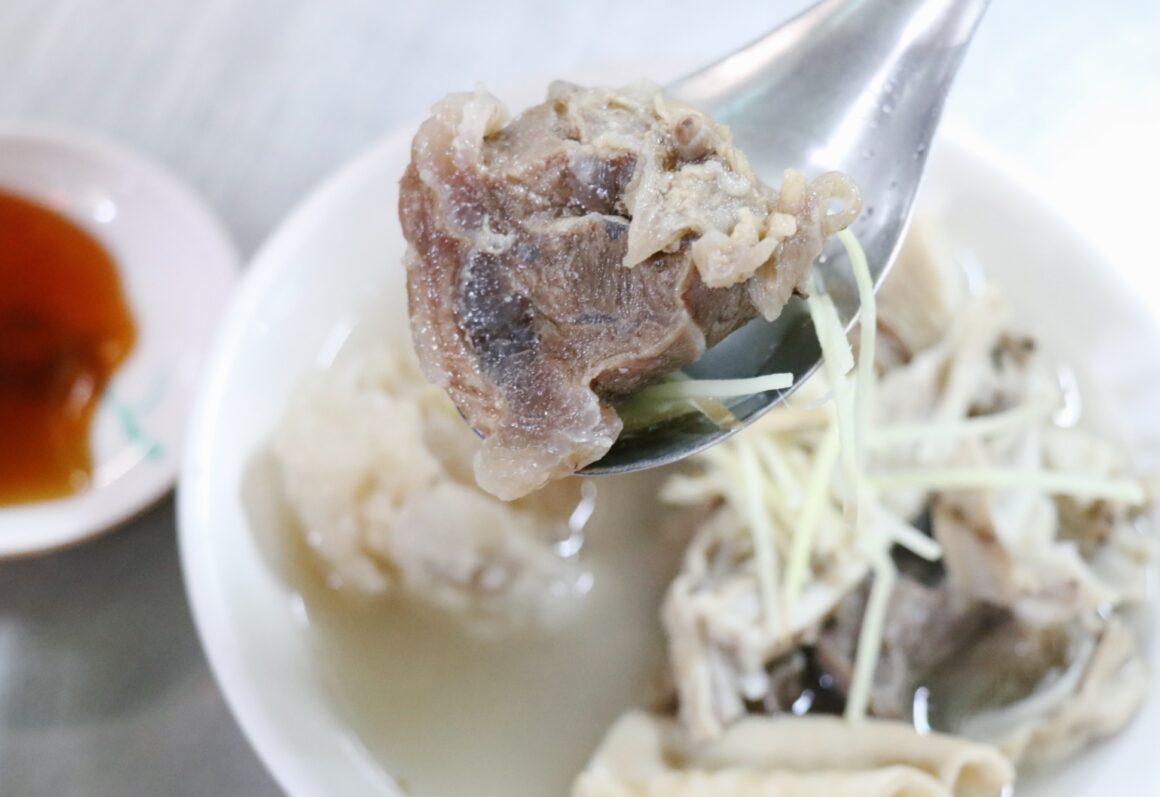
The “net-wrapped meat roll” (阿富網絲肉捲) at Chiayi East Market is what old Chiayi folks call a classic traditional dish. It used to appear at banquet feasts and has now become a beloved everyday treat at the market. The shop insists on using pork caul fat and the pig’s diaphragm to wrap the filling—the diaphragm is a rare cut with only one piece per pig, extremely time-consuming to clean and prepare, but it releases a delicate aroma and tender texture when deep-fried. The outer caul fat becomes golden and crispy, while the inside perfectly blends pork, fish paste, and scallions with distinct layers of flavor. Unlike modern versions that often use tofu skin as a substitute, this dedication preserves the most authentic old-time taste. Because it’s so delicious, it evolved from a banquet dish to a signature daily item at market stalls, becoming a traditional flavor that Chiayi people can’t bear to give up.
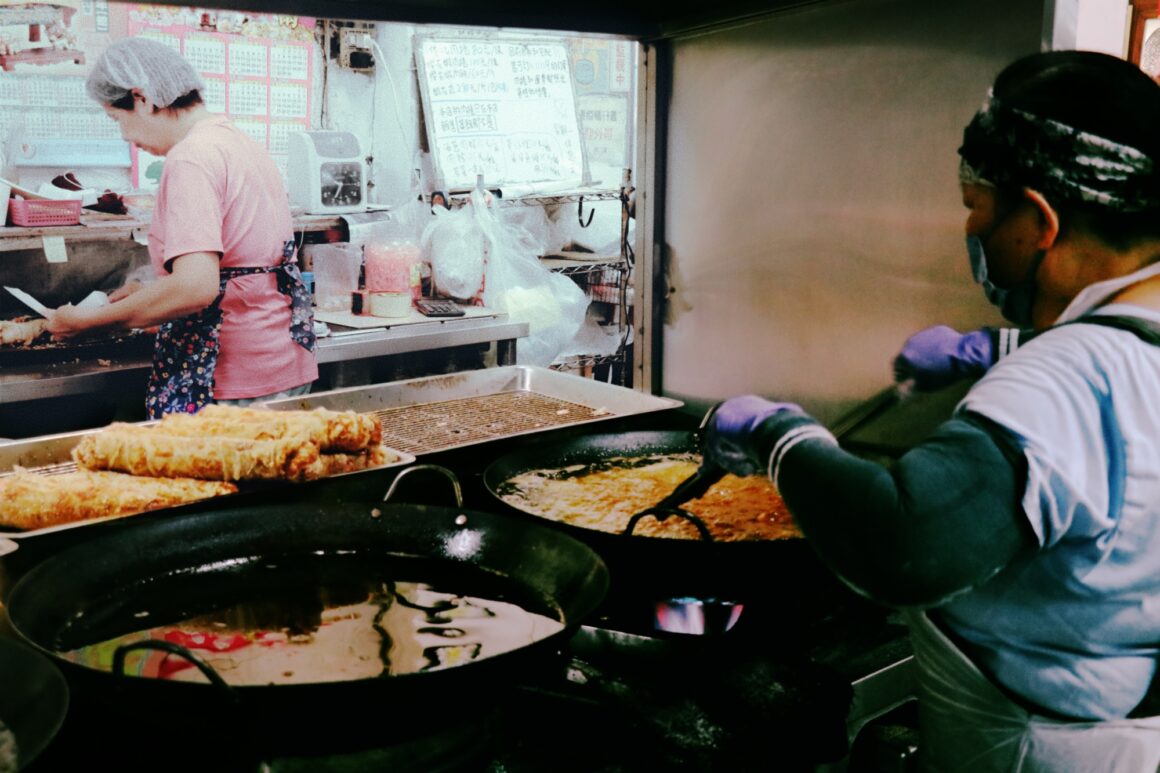
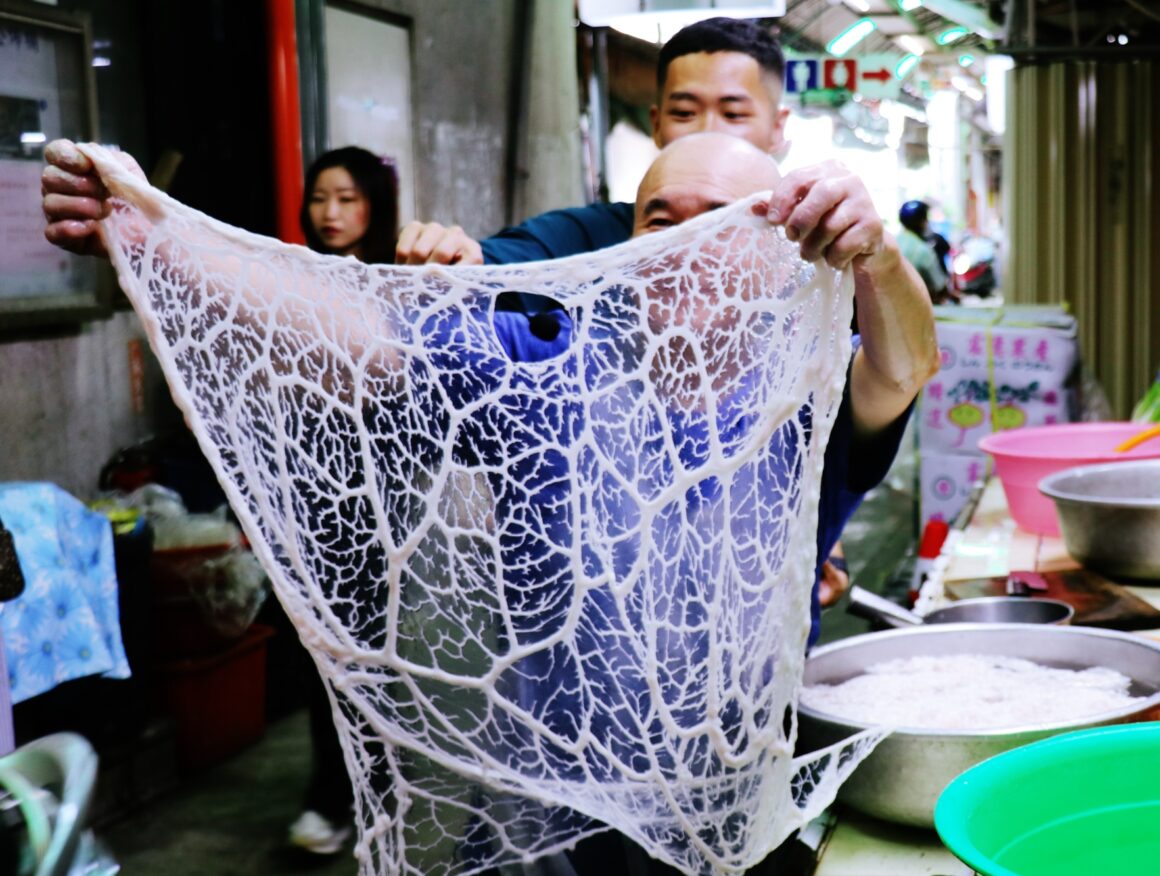
This kind of morning—filling and familiar—is the simplest happiness in a Chiayi person’s daily life.
Chiayi East Market
Cash only · No reservations
Hours: Closed Monday, Tuesday-Sunday 6:00 AM until sold out
10:00 AM – Sweetness from an Old Hospital
After a hot soup breakfast, a bowl of douhua (tofu pudding) is just right. Taocheng Douhua (桃城豆花) occupies a building that was originally Ren’ai Hospital from the Japanese colonial period, one of the area’s earliest clinics with real scale. After decades of silence, the building was carefully restored by second-generation owner Sam Liu, born in the 1980s. He preserved the arched windows, terrazzo walls, and old wooden window frames, transforming it into a quiet dessert haven on the street.
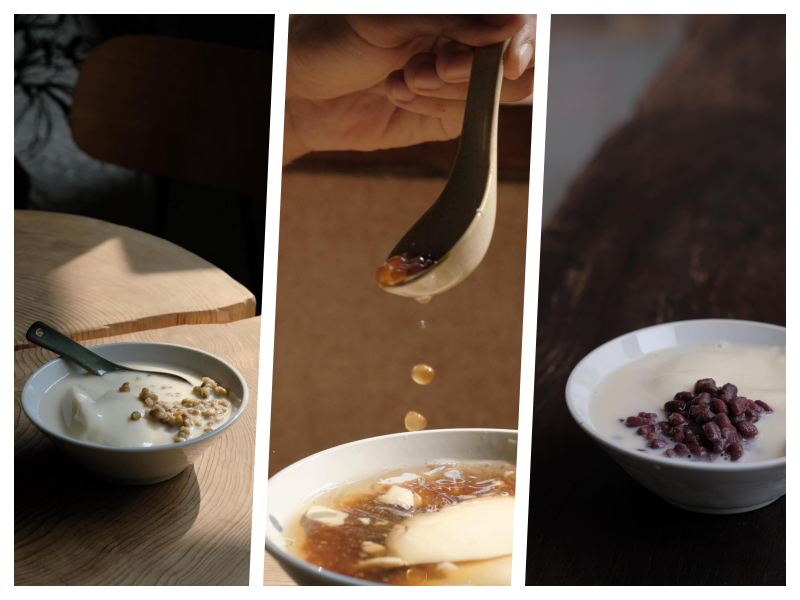
The handmade douhua is silky smooth with a subtle soy aroma, and the sugar syrup is warm without being cloying. Toppings like peanuts, tapioca pearls, red beans, or white fungus each bring their own character. Beyond douhua, they also serve brunch items like open-faced sandwiches on sourdough and avocado salads, enriching your rest time with quality ingredients that show care for daily details. Sitting by the window with sunlight streaming onto wooden chairs, a bowl of douhua becomes the gentlest confession of the afternoon.
Taocheng Douhua (Guang-Hua Road)
No. 65, Guanghua Road, East District, Chiayi City 600
Hours: Closed Wednesday, other days 9:00 AM–10:00 PM
12:00 PM – SMART HOT POT (New Brand from SMART FISH)
Featured in the Netflix series “Street Food Asia”,The SMART FISH(林聰明沙鍋魚頭) has been running business for over 70 years, growing from a roadside stall to nationwide fame. It’s not only the first dish many visitors associate with Chiayi, but also a familiar taste many locals have been waiting for “since childhood.” After the 3rd generation took over, they successfully expanded beyond Chiayi to Taipei 101, and even airplanes.
In 2024, along the road to Alishan, they opened SMART HOT POT (聰明鍋), reinterpreting the classic with a “one pot per person” light meal concept. The broth is still made with sa-cha sauce, garlic, and fish bones—rich aroma with distinct layers. Featuring personalized options, besides the traditional fish head pot, they offer new flavors like pickled cabbage pot and lobster pot, making it easy for travelers to enjoy. The space is more spacious too—no more squeezing into street corners to queue!!
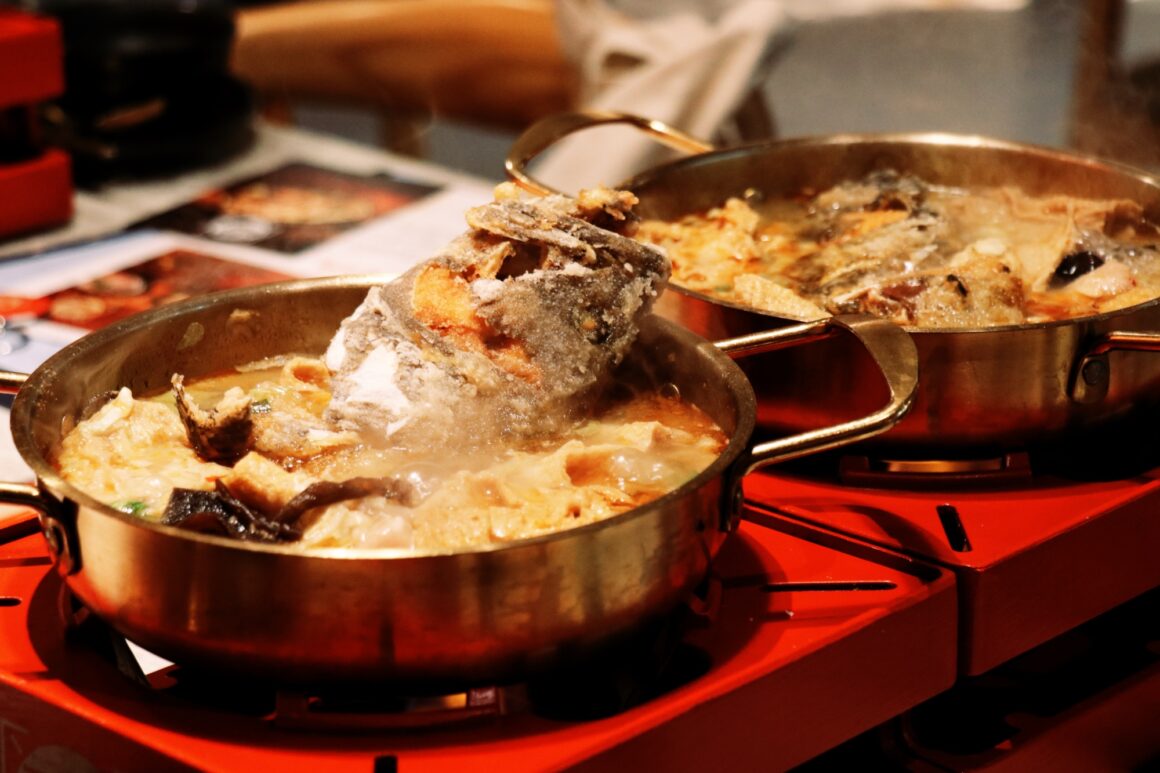
The restaurant insists on using low-carbon Angus beef from local farms, linseed-fed pork that’s fresh without any gamey taste, naturally free-range chicken, locally delivered seafood, and small-leaf black tea from Alishan. Paired with cabbage, tofu, bean curd skin, and glass noodles, it’s abundant without being cluttered, relying on the sincerity of ingredients and well-developed traditional flavors.
Smart Hot Pot
No. 730-1, Section 1, Daya Road, East District, Chiayi City
Hours: Closed Monday & Tuesday, other days 11:30 AM–3:00 PM / 4:30 PM–8:30 PM
2:00 PM – Afternoon Tea Where Desserts and Historic Buildings Share the Stage
In the afternoon, stepping into Horikawa Tea Studio (堀川茶事)—converted from a Japanese-style old house—feels like entering an afternoon where time stands still. Originally from the Showa era, the building is over a hundred years old. The two-story wooden structure with wooden windows, tatami mats, old wooden cabinets, and vessels quietly displayed creates a space where light filters through latticed doors onto the floor, filled with the gentle atmosphere of careful daily preservation.


Desserts and drinks change with the seasons. The reservation-only “Cantaloupe Parfait” features seasonal cantaloupe as the star, paired with sorbet, macarons, and other fruit accents, layered like an edible dessert architecture—visually striking and rich in flavor complexity. For something refreshing, try a summer sparkling drink—passion fruit pulp, lemon slices, and pink sorbet blend colorfully in a glass; the moment sparkling water is poured in, the fruit fragrance bursts like fireworks, with refreshing sweet-and-sour notes adding soft tones to the afternoon.
Horikawa Tea Studio
No. 15, Lane 37, Wufeng S. Road, East District, Chiayi City 600
Hours: Closed Monday to Wednesday, other days 1:00 PM–7:00 PM
6:00 PM – A Sunset Dinner on the City Rooftop
As the sky gradually turns orange-red, if you want to create a memorable ending to your Chiayi food journey, consider booking the rooftop private chef experience at ROOF Bistro. This is a reservation-only, no-menu dining space hidden atop a building in downtown Chiayi—quiet environment, expansive views, and a well-regarded local “secret dining table.”

Chef A-Yao graduated from professional culinary school and has experience with both traditional Chinese banquets and Western cuisine, making fusion dishes no challenge. His passion for dining extends to tea, wine, and coffee. From appetizers to desserts, each course flows seamlessly. “I spent too much time in kitchens where I couldn’t see the sky outside,” he says, which inspired his vision for a future kitchen with outdoor views.
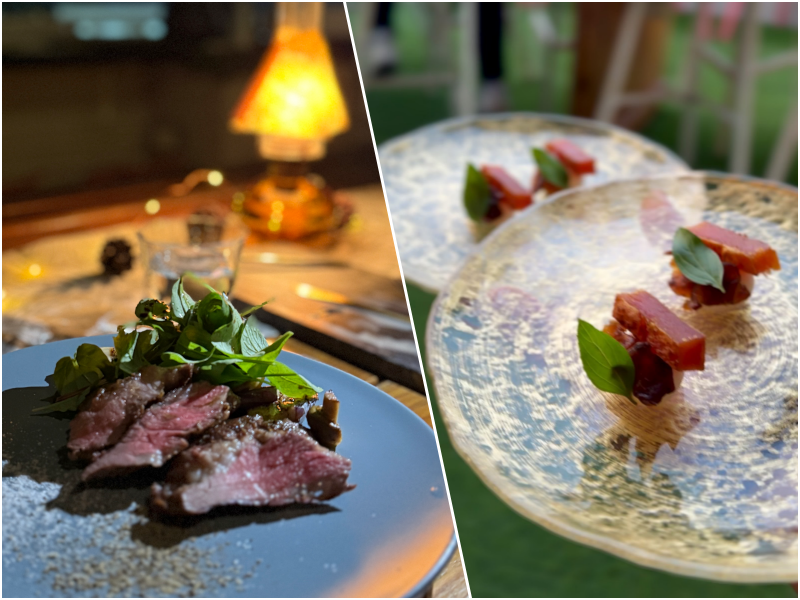
Fate brought him to this space. How to cleverly configure necessary kitchen equipment in a refined, compact space while maintaining a complete ventilation system and comfortable atmosphere for guests is worth discovering in person. Pair it with a glass of champagne or beer, watch the sunset cast its glow over the rooftop platform and distant mountains, and let the day’s flavor journey pause on a gentle note.
ROOF
5F, No. 172, Houyi Street, West District, Chiayi City
Reservations via Instagram or Facebook at least 2 days in advance
Hours: Monday-Sunday 12:00 PM–9:30 PM
Chiayi doesn’t win with glamour, but with a bowl of soup, a piece of candy, or a cup of tea, it slowly convinces travelers to stay. This two-day, one-night food journey is both a culinary wandering and a deep memory formed through gentle encounters with local culture.


